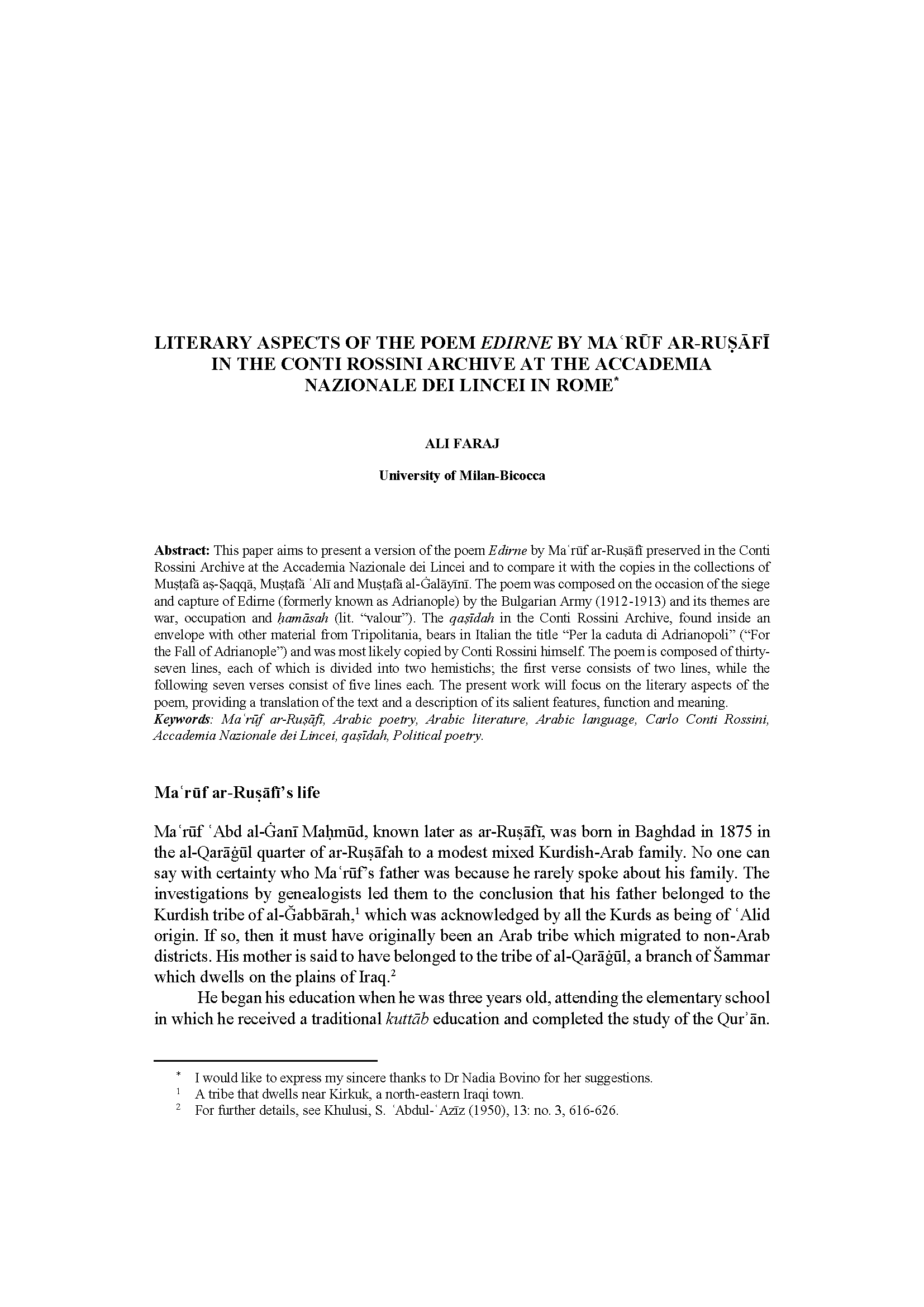LITERARY ASPECTS OF THE POEM EDIRNE BY MAʿRŪF AR-RUṢĀFĪ IN THE CONTI ROSSINI ARCHIVE AT THE ACCADEMIA NAZIONALE DEI LINCEI IN ROME
DOI:
https://doi.org/10.62229/roar_xxii/2Keywords:
Maʿrūf ar-Ruṣāfī, Arabic poetry, Arabic literature, Arabic language, Carlo Conti Rossini, Accademia Nazionale dei Lincei, qaṣīdah, Political poetryAbstract
This paper aims to present a version of the poem Edirne by Maʿrūf ar-Ruṣāfī preserved in the Conti Rossini Archive at the Accademia Nazionale dei Lincei and to compare it with the copies in the collections of Muṣṭafā aṣ-Ṣaqqā, Muṣṭafā ʿAlī and Muṣṭafā al-Ġalāyīnī. The poem was composed on the occasion of the siege and capture of Edirne (formerly known as Adrianople) by the Bulgarian Army (1912-1913) and its themes are war, occupation and ḥamāsah (lit. “valour”). The qaṣīdah in the Conti Rossini Archive, found inside an envelope with other material from Tripolitania, bears in Italian the title “Per la caduta di Adrianopoli” (“For the Fall of Adrianople”) and was most likely copied by Conti Rossini himself. The poem is composed of thirty-seven lines, each of which is divided into two hemistichs; the first verse consists of two lines, while the following seven verses consist of five lines each. The present work will focus on the literary aspects of the poem, providing a translation of the text and a description of its salient features, function and meaning.





